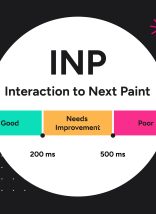Building a high-performance website starts with site planning and architecture. Unfortunately, for many development projects, site speed is overlooked because the responsibility spans across different roles and page speed wasn’t always a Google quality standard.
As of July 2018, Google announced a new ranking algorithm known as “The Speed Update” where Google will look at how fast your mobile pages are and use that as a ranking factor. Even though this update focused on mobile experiences, if history is any indicator, the expectation will extend to desktop experiences as well.
While site speed should be baked into an entire development project, you may need to find ways to retroactively fix it.
Why do you need to fix this immediately?
As Ricky Bobby says, “if you ain’t first you’re last.”
Would you rather be proactive or reactive? The former gives you a competitive advantage, and it’s one we recommend. Google rewards sites that apply best practices when it comes to site development.
Ignoring site speed is becoming more hurtful than ever. First of all, your users expect your site to load quickly. Site performance plays a major role in engaging and retaining users. If you run your business on the web, performance is crucial. If you can’t retain your users then they won’t convert, which ultimately has a negative impact on your revenue.
Don’t take our word for it. Take a look at what Google has to say about site speed and how poor site performance impacts paid and organic visibility.
Fast websites generate more revenue.
Google Ads Impact
According to Google studies, sites that load within 5 seconds vs 19 seconds:
- Drive double the mobile revenue. Mobile users are impatient! They are much more likely to convert on a fast page
- Gain 25% in ad viewability. Google takes your landing pages into consideration; they are more likely to serve your ads if your page speed is fast.
- Have 60% more page views, increasing retargeting opportunities. If your website loads quickly, people are more likely to stay on your website and browse around.
Google Organic Impact
- 1 second delay in load time loses 11% pageviews. Fast websites get more organic entrances and keep users on the site longer.
- July 2018, Google announced page speed will be taken into account for their ranking algorithm. And page speed is only gaining importance as user expectations increase.
- 3 Marketing insight leaders emphasized the importance of page speed. Hubspot, Backlinko, and Optinmonster, listed site speed as a top-ranking factor for Google.
UX & Conversion Rate Impact
As organic rankings and engaging ads bring traffic to your website, page speed will facilitate conversions by enhancing UX.
- 1 second delay in load times loses 7% of conversions.
- 53% of mobile ad clicks immediately exited when load times exceeded 3 seconds.
- 47% of consumers expect a page to load in 2 seconds or less.
- As page speed increases from 1 to 5 seconds, the probability of bounce increases by 90%.
Atlantic BT’s Proven Quick Wins
- Reduce the number of third-party scripts
- Caching and minification
- Optimize images
- Lazy load images
- Serve content from a Content Delivery Network (CDN)
- Remedy redirect chains
Need help with page speed?
If you’re interested in learning more about the impact of page speed and see how you can fix it, we’re here to help. We’ve brought many websites up to speed, including our own! Learn more about our Site Speed Quickstart, or reach out for a free consultation.








